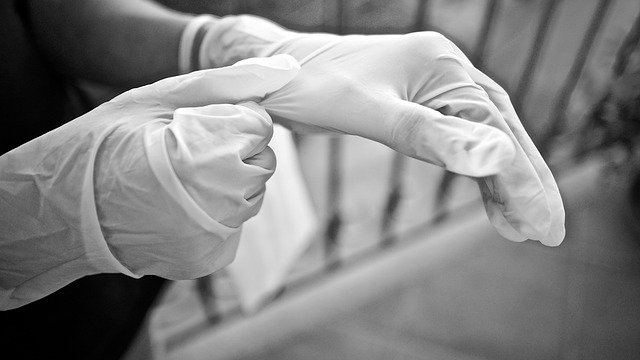We offer medical detox and multiple addiction treatment options in our
luxury treatment centres in Port Hope, Cobourg, and Ottawa.
COVID-19 Safety Measures
As part of the essential workforce identified by the Province, the Canadian Centre for Addictions is committed to the health and safety of our clients and employees.
We preemptively closed our centre nearly two months ago to establish rigorous safety procedures in the light of requirements to combat the spread of Covid-19 and to take the time to ensure that we have upheld our high standard of hygiene by sanitizing all services and establishing a new cleaning routine. Our unique decision also meant we could establish a necessary supply chain of cleaning and sanitizing products free from disruption.
We are resuming inpatient services as of Tuesday, May 19th.
Our re-opening strategy has been developed in direct consultation with both Public Health and the Ministry of Labour based on following 5 Key Instructions of Infection Prevention and Control:
SCREENING & TESTING PROTOCOLS
Screening
Active COVID-19 screening will occur for Staff, Residents, and all essential visitors (eg. supporting tradespersons, etc.).
For Residents:
- New residents will be tested prior to admission.
- Screening for residents will begin at pre-admission and will remain active on a daily basis. Any departure and reentering of the facility will necessitate a new COVID-19 screening.
- Resident’s temperature will be taken daily.
For Staff:
- All staff will be tested on a monthly basis.
- Screening for Staff will be administered at the beginning of each shift. Any departure and reentering of the facility will necessitate a new COVID-19 screening.
- Staff members’ temperature will be taken daily.
Testing
CCFA has arranged for Public Health to come onsite before the end of May to administer a COVID-19 Test to all Staff and Residents. This is a new development in the Public Health strategy as they are increasing the testing capabilities within the province of Ontario
We are working directly with the Public Health Unit to establish a frequency quotient for this testing.
Social Distancing
Social Distancing will be maintained by both Staff and Residents.
Whenever the ability to maintain Social Distancing may be difficult (traveling in hallways, staircases, etc), it is recommended to wear a Face Covering.
- Group Settings, Work Areas, And Dining will be modified by the organization of furniture, demarcation, or with staggered times to promote Social Distancing throughout the facility.
- Intakes will permit only one family member to accompany the resident and Social Distancing between Admission Staff must be maintained. (Screening protocols must be followed prior).
- Modifications of some activities may include outdoor spaces where Social Distancing and ventilation are more abundant. If activities can be done outside, Public Health recommends utilizing the increased space and increased ventilation.
- Psychotherapy will be done utilizing remote video technology.
- Online Video Options and In-House meetings (w/social distancing) will replace off-site meetings.
Personal Protective Equipment (PPE)
We have secured a supply of Personal Protective Equipment which will be available to staff and residents. It is important to note that PPE is not a replacement for Social Distancing. Social Distancing is our first and most important requirement and PPEs will be added if the ability to maintain social distancing is difficult.
- In situations where the ability to maintain social distancing of 2 metres or 6 feet apart (traveling hallways, staircases, etc) a face covering must be worn.
- Staff and residents are encouraged to bring a face covering that they may already be comfortable using. Washable masks can be provided upon request and a stockpile of medical masks and face shields are available for both staff and residents.
- Plexiglass paneling will be installed in the Administration Office and at the Medication Door
Environmental Hygiene
Sanitizing frequency has been increased on a daily basis.
Housekeeping Staff have been working prior to re-opening to ensure
- Thorough cleaning and sanitization of the Centre
- Identification and review of all high touch areas
- A review of all necessary protocols of effective disinfection
High-touch areas include:
- Toilets and sinks,
- Door handles (including refrigerator)
- Kitchen surfaces and small appliances (e.g., kettles, coffee makers)
- Light switches
- Telephones and remote controls
We have secured a continued supply of sanitizer to ensure consistent safety standards.
Personal Hygiene
Hand hygiene refers to hand washing or hand sanitizing and actions are taken to maintain healthy hands and fingernails. This must be performed frequently with soap and water or hand sanitizer for 15- 20 seconds:
- Before and after preparing food;
- Before and after eating;
- Before going to sleep;
- After using the toilet;
- After disposing of waste or handling dirty laundry;
- After blowing your nose, coughing, or sneezing;
- After interacting with other people at a distance of less than 2 metres/6 feet
- After facilitating or engaging in group activities
- Whenever hands appear dirty or are visibly soiled
Hand-washing with plain soap and water is the preferred method of hand hygiene. If soap and water are not available, hands can be cleaned with an alcohol-based hand sanitizer that contains at least 70% alcohol and will be accessible to all residents and employees.
Avoid touching the face, eyes, nose, and mouth at all times, especially with unwashed hands.
Respiratory Etiquette
- Cover your cough, nose, and mouth with a tissue when coughing and sneezing cough or sneeze into the bend of the arm, not the hand.
- Residents and staff must dispose of any tissues used as soon as possible in a lined, non-touch wastebasket and wash their hands.
CCFA has scheduled an Infection and Prevention and Control team to perform a guidance audit towards the end of May. This is a requested service by CCFA in our efforts and commitment to go above and beyond the standard recommendations for infection prevention and control.
If you should have further questions regarding our measures please contact us.
Best Practices will continue to evolve based on information from the Ministry of Health and Public Health communication.





